Table of Contents
AI
- Wolfgang von Kempelen built world’s first intelligent machine in 1770.
- This device was so smart that some of the best minds of the day at chess were consistently, beaten by it.
- The Turk was such a success that after its debut at the Schonbrunn Palace in Austria, Kempelen was forced to take it on tour across Europe.
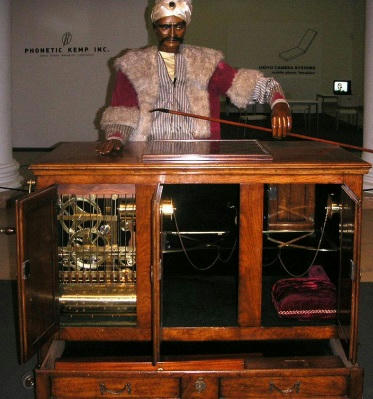
- It played with a number of distinguished opponents including Francios-Andre Philidor (the best chess player of the time) Napoleon Bonaparte and Benjamin Franklin.
- While it did not win every match, the Turk’s performance was so creditable that according to Philidor’s son, it was the most exhausting game of chess his father had ever played.
- In 1854, the Turk was destroyed in a fire, taking its secrets with it.
- It was only much, much later that the contraption was revealed to be an elaborate hoax.
- Instead of a steampunk computational machine far ahead of its time, Kempelen had built a device that could conceal within its machinery, a human being who observed the moves of the opponent from within the Turk and responded by manipulating the articulated arm of the automaton from inside to move his pieces.
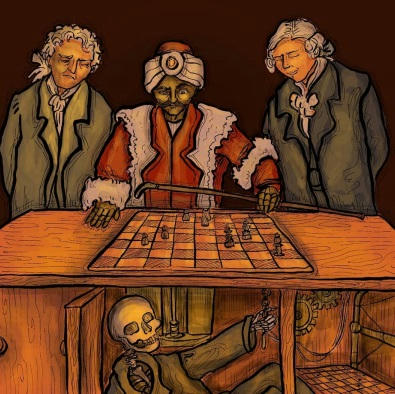
- Today’s artificial intelligence is vastly different from what Kempelen was peddling.
- It has become a part of our life and influences much of what we do.
- So much so that everyone, no matter what their product or service, is trying to spice up their offerings with a dash of machine learning.
- The legal industry has not been spared.
- Some services can pore through the contents of virtual data rooms and reliably extract from all documents and records of an acquisition target, those issues that represent significant risks to the acquirer.
- Others claim to be able to generate complex contracts to suit the obscure requirements of clients with far more accuracy than a human.
- Artificial intelligence is only as good as the data sets it is trained on.
- Many other industries have reverted to using humans to perform some or all of the services they had previously entrusted to machines.
- Companies that use algorithms to process medical scans to determine whether a tissue or blood sample is malignant or not, are getting teams of radiologists to review the output to ensure that the diagnosis that the software came up with is not inaccurate.
- AI may not be the magical solution that they were promised but if it can be supervised, its choices studied and corrected so that it learns from its mistakes, it should be possible to build better, more responsive AI systems.
- This is a costly exercise but, going by the success that other industries have had, one that will eventually bear rich dividends.

President’s Secretariat
-
- President of India Shree Ram Nath Kovind was in Hanoi, Vietnam.
- 2-nation state visit to Vietnam and Australia
- President said India and Vietnam are old civilisational friends, and trade is a driving force of our contemporary partnership.
- In the past eight years, there has been an almost four-fold increase in bilateral trade, from US$ 3.7 billion in 2010 to US$ 12.8 billion in 2017.
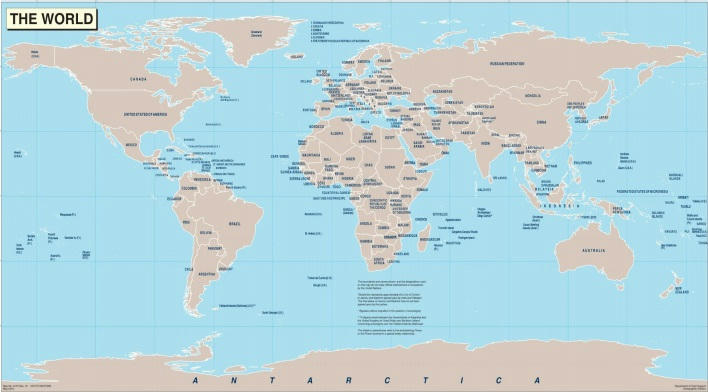
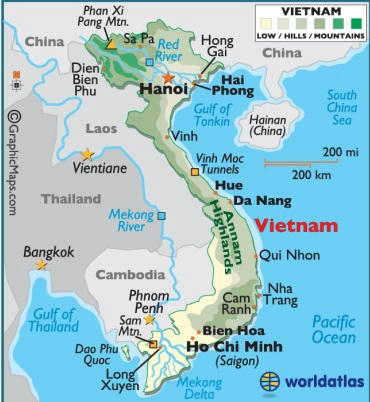
- With both Vietnam and India on a path of high growth, this trend is expected to continue.
- The President said the Vietnam-India business relationship presents prospects for engagement in financial services, IT and the digital economy, hydrocarbons, defence, renewable energy, mining, healthcare, tourism and civil aviation, among other sectors.
- Buddhist Sangha is an important institution promoting friendship between India and Vietnam.
- He noted that Buddhist monks were as active in nurturing our relations in ancient times as they are today.
- A UNESCO World Heritage Site, the My Son temple complex is among Vietnam’s most cherished cultural treasures.
- The ancient temples are being restored with support from the Archaeological Survey of India, and the President was briefed on the restoration project.
Vice President’s Secretariat
- Shri M. Venkaiah Naidu has said that Mahatma Gandhi is one of the greatest revolutionaries the world has ever seen, only his revolutions were bloodless and peaceful
- The Vice President said that six decades had passed since Mahatma Gandhi left his earthly abode, yet, his teachings remain fresh in the memory of his countrymen.
- Shri Naidu observed that Gandhiji’s principles of liberty, dignity and equality were not limited by space and time, they have universal applicability and timeless value.
Prime Minister’s Office
- “Today, on World Toilet Day, we reiterate our commitment towards enhancing cleanliness and sanitation facilities across the nation. We in India take pride at the remarkable speed with which sanitation cover has increased in the last four years.
- The movement for a cleaner India and ensuring better sanitation facilities is a people’s movement. It is the 130 crore Indians, particularly women and youngsters who have taken the lead in this movement. I congratulate all those working to fulfil the dream of a Swachh Bharat.”
Ministry of Commerce & Industry
- Strategic Alliance for WTO and Trade Remedies: New Delhi
- India will work along with other member countries to reform the World Trade Organization (WTO) to ensure that it remains an engine for global trade.
- Multilateral trading system is under stress and number of fresh trade restrictive measures have surged which will affect global trade and economic growth.
- Suresh Prabhu said that without WTO, trade, economy will not expand as it is the only organization dealing with global rules of trade between nations.
- The WTO acts as an essential pillar of global trade governance providing the framework of rules and practices that underpin some 98% of global trade today and is expected to provide rule based system as well as stability and predictability in world trade.
President’s Secretariat
- The President of India, Shri Ram Nath Kovind in his message on the eve of Miladun-Nabi has said: –
- “On the auspicious occasion of Milad-unNabi, the birthday of the Prophet, I extend my good wishes to all fellow citizens, especially to my Muslim brothers and sisters”
WW-I Memorial and India’s current position
- World War 1: Million+ Indian soldiers fought overseas.
- 62,000 of them died in these battles, countless more were injured.
- 1931: India Gate was built by British to commemorate the fallen soldiers.
- India’s inclusion in the celebrations in Paris stands apart from the 50-year celebration of the Armistice, when the country’s contribution had been edited out.
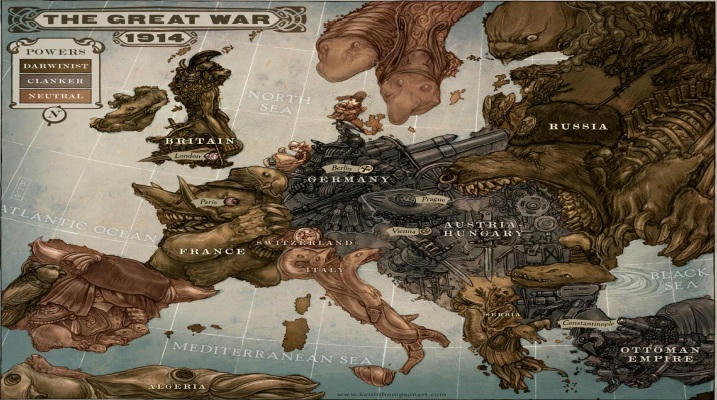
- This historical recompense reflects recognition of India’s growing role in the world today.
- India too has recognised the heroic sacrifice made by its soldiers, fighting in strange lands far away from home, in inhospitable weather, for a country that had colonised it.
- The memorial built by the Government of India, at VillersGuislain in France, to commemorate the Indian soldiers who fought in the Battle of Cambrai marks India’s acceptance of its history.
- Restoring India to its rightful place in the history of the Great War is a reminder of the fact that dealing with big global challenges will require countries to work together
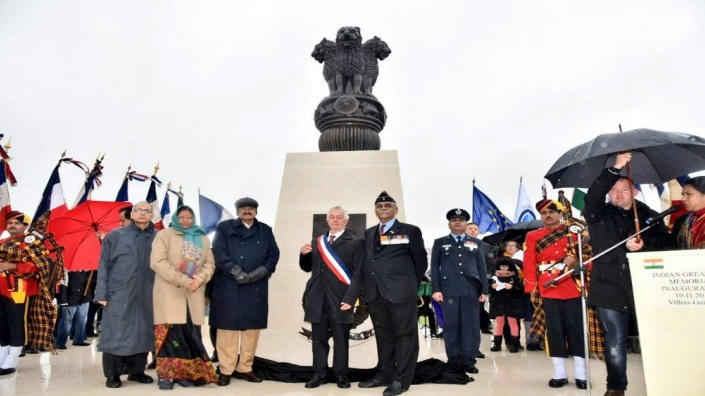





















 WhatsApp
WhatsApp